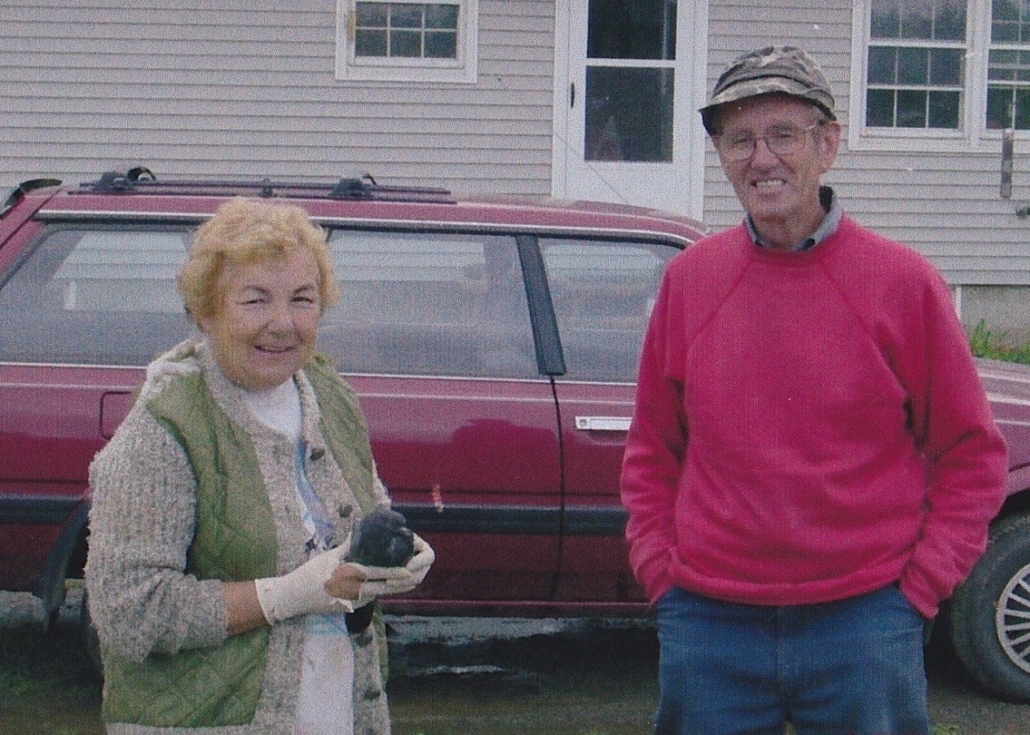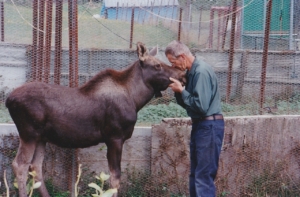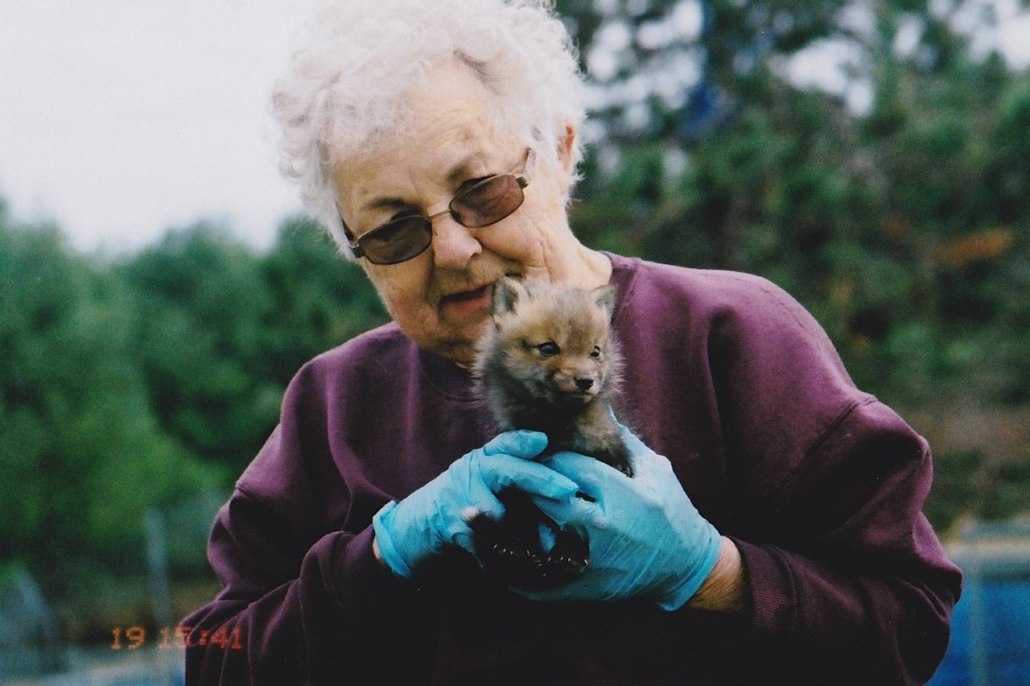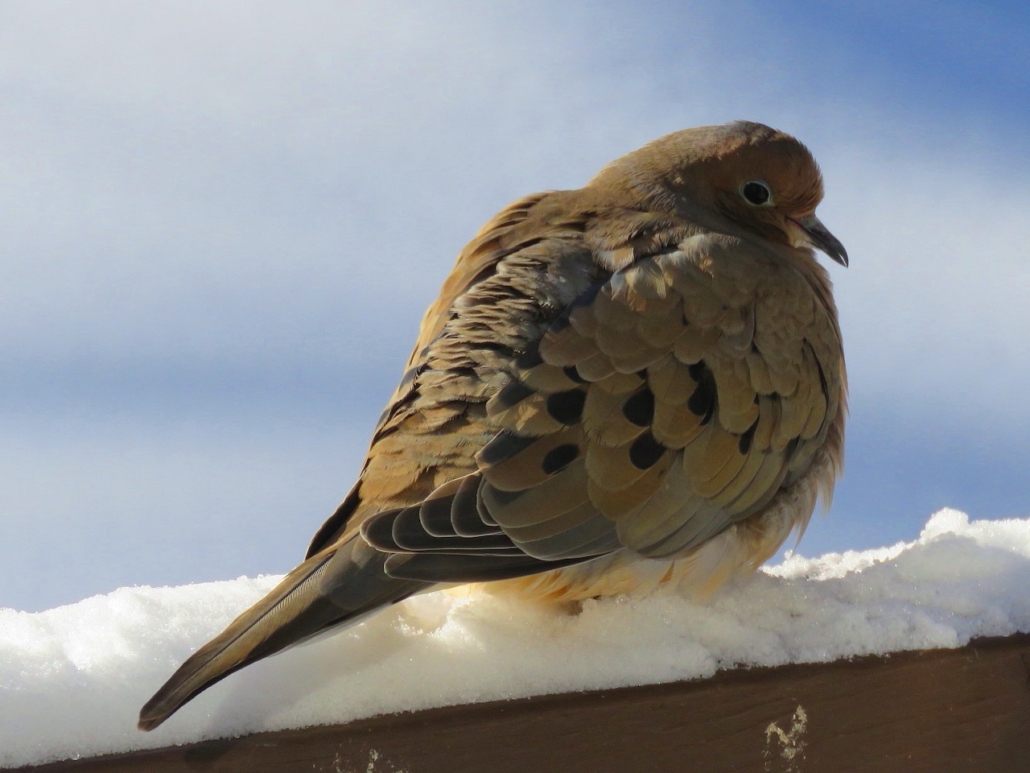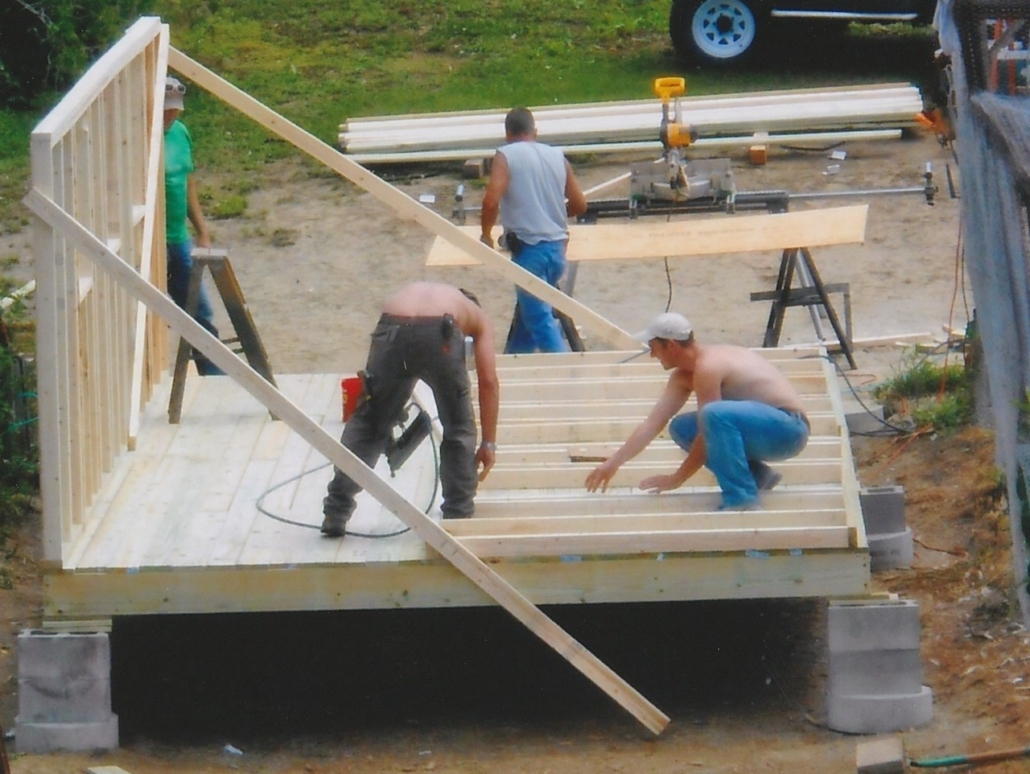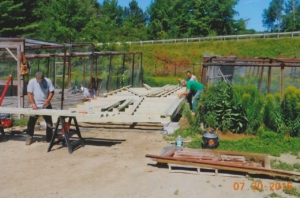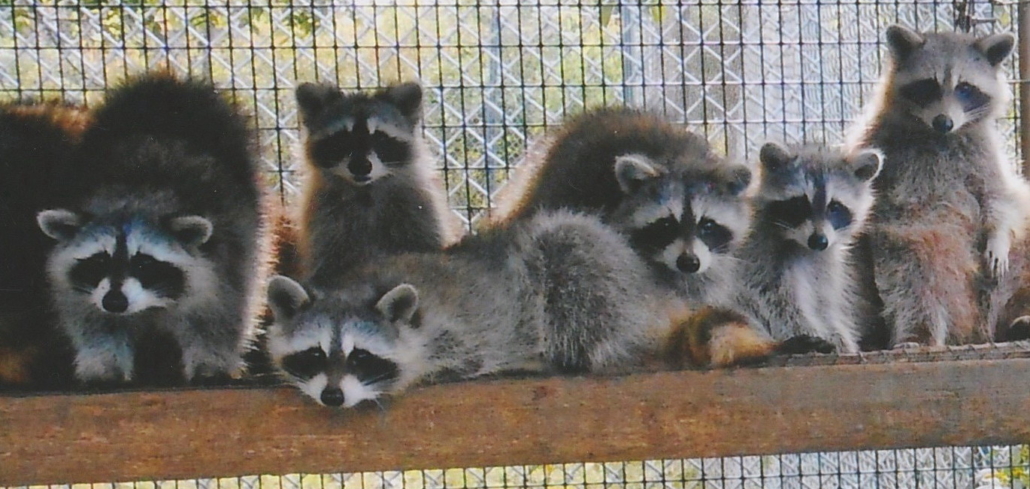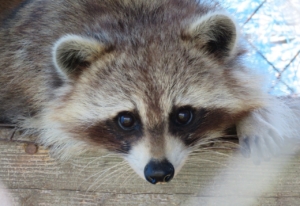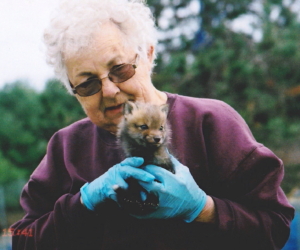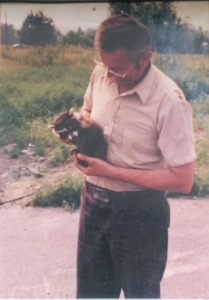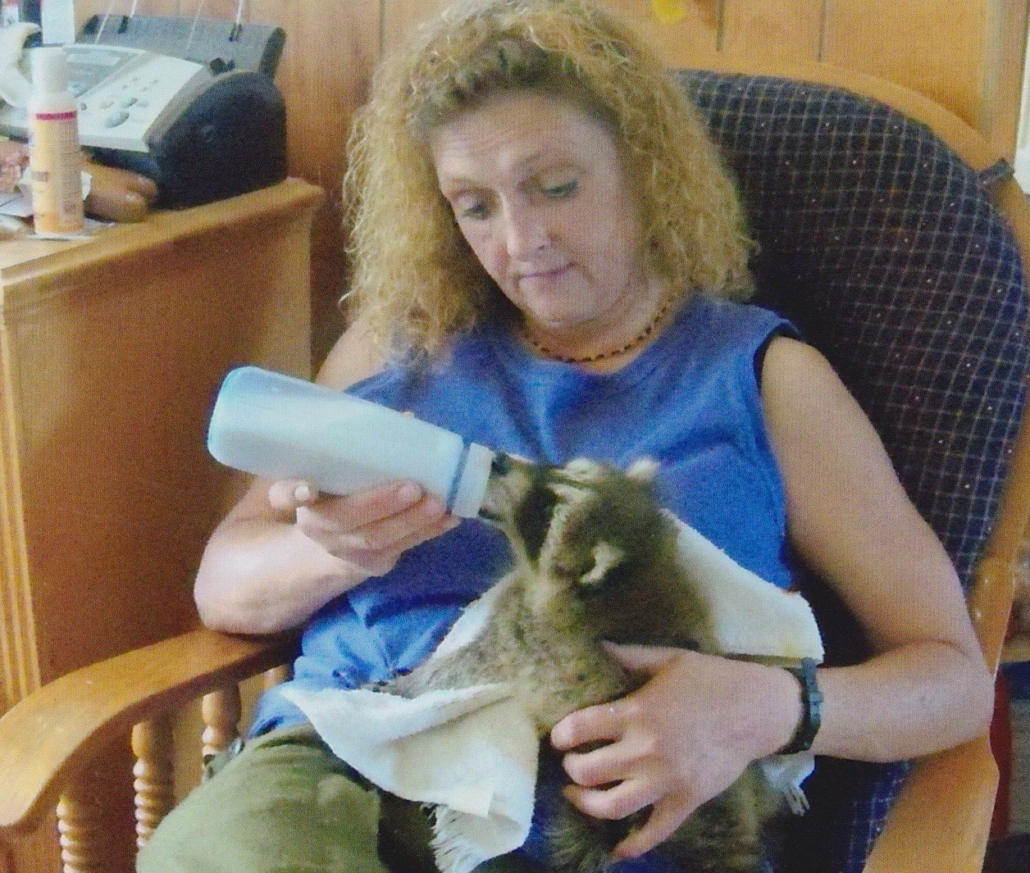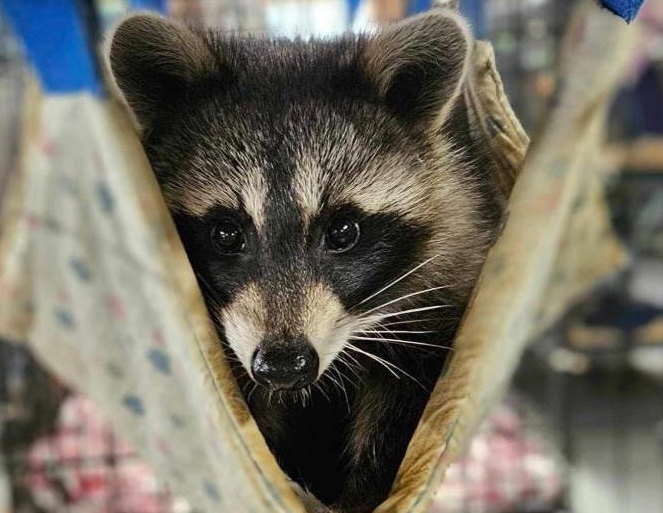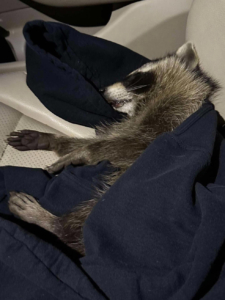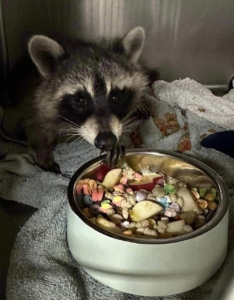The final chapter: celebration of life for Don & Carleen Cote
Couple remembered for the many years of dedication to the rehabilitation of injured wildlife
by Jayne Winters
On September 20, a Celebration of Life for Don and Carleen Cote was held at the VFW, in Augusta. As I was driving by the former Duck Pond Wildlife Care Center on my way to this special event, a beautiful male Bald Eagle flew just above my car. A fitting symbol of freedom, strength, and courage, with resilience to endure difficulties.
The Celebration of Life was a wonderful tribute to Don and Carleen: photo albums were on each table, documenting their 60 years of dedication to wildlife rehabilitation; a memory board of pictures from childhood to high school graduation to their wedding and the years that followed reflected decades of commitment and love for each other; flowers and antique dolls were also on display, remembering Carleen’s other interests; and last, but not least, were decorative wildlife statues, along with a pet carrier and toy stuffed weasels.
Attendees included, of course, family members, as well as representatives from the Dept. of Inland Fisheries & Wildlife, fellow rehabbers, past Duck Pond volunteers, and many friends – some lifelong, others fairly recent. Memories and stories were shared and it was indeed, a celebration of two people who truly made a difference in many lives.
In a May 2018 tribute, The Town Line’s former editor, Lea Davis, noted a poem Carleen was fond of, which read, in part:
“My job is to assist God’s creatures… I was born with the drive to fulfill their needs.
“I take in helpless, unwanted, homeless creatures without planning or selection. I have bought dog food with my last dime. I have patted a mangy head with a bare hand. I have hugged someone vicious and afraid. I have fallen in love a thousand times. And I have cried into the fur of a lifeless body too many times to count. I am an Animal Rescuer. My work is never done. My home is never quiet. My wallet is always empty, but my heart is always full.”
I found the entire poem [author unknown] on-line and want to include another portion of it:
“…I notice those lost at the road side and my heart aches. I will hand raise a field mouse and make friends with a vulture. I know of no creature unworthy of my time. I want to live forever if there aren’t any animals in Heaven, but I believe there are. Why would God make something so perfect and leave it behind?
“…We are a quiet, but determined army and we are making a difference every day.
“There is nothing more necessary than warming an orphan, nothing more rewarding than saving a life, no higher recognition than watching them thrive. There is no greater joy than seeing a baby play who, only days ago, was too weak to eat. By the love of those who I’ve been privileged to rescue, I have been rescued. I know what true unconditional love really is, for I’ve seen it shining in the eyes of so many, grateful for so little.”
From that first baby black duck in 1964 to the final transfers of a few deer, foxes, racoons, ducks/geese, and squirrels to other rehabbers and the Maine Wildlife Park, in Gray, it’s truly overwhelming to think about the thousands of birds and animals Don and Carleen cared for, whether to nurture them back to health for release or to provide pain-free comfort during their final hours. Theirs is an undeniable legacy of the compassion, commitment and values they upheld. They are truly missed, but will never be forgotten.
I’ll end this last Critter Chatter with a quote from a card a mutual friend sent to me after Don’s passing: “As some people journey through life, they leave footprints – of kindness and love, courage and compassion, joy and faith. Even when they’re gone, the trail they’ve left behind continues to inspire us.”


